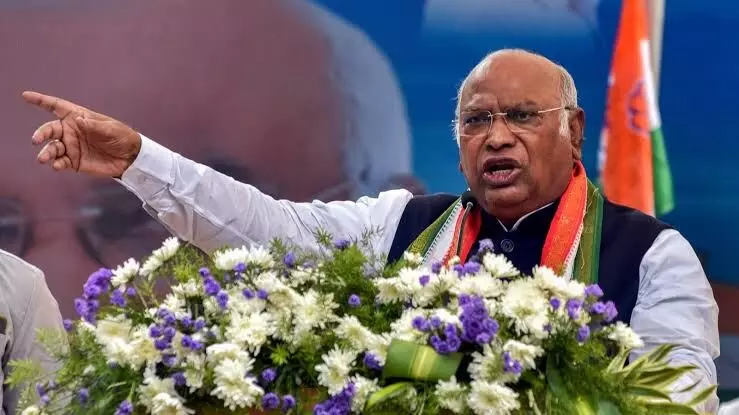In my personal opinion, RSS should be banned: Kharge

New Delhi: Congress president Mallikarjun Kharge on Friday said that in his personal opinion the RSS should be banned as most of the law and order problems in the country are arising because of the BJP-RSS. Kharge also hit back at Prime Minister Narendra Modi after he attacked the party on Sardar Vallabhbhai Patel's birth anniversary, and cited Patel's remarks criticising the RSS following the assassination of Mahatma Gandhi in 1948. Responding to a question on banning RSS, Kharge said, “It is my personal opinion, it should be done” as most of the issues and law and order problems are arising because of the BJP-RSS. Noting that today is the birth anniversary of Patel and death anniversary of former prime minister Indira Gandhi, the Congress president said these two great leaders -- "iron man" and "iron lady" -- made a big contribution to the country and strived to maintain unity.
This is the history of the Congress and its contribution, Kharge said at a press conference here. Kharge cited a letter written by Patel to Syama Prasad Mookerjee in which the then home minister said the RSS had created an atmosphere that led to the tragedy of Mahatma Gandhi's assassination. They always tried to portray a rift between India's first prime minister Jawaharlal Nehru and Patel when they had great ties and both had praised each other, Kharge said. Nehru hailed Patel for shaping India's unity and Patel called Nehru an ideal for the country. Kharge's remarks came after Prime Minister Modi said Sardar Patel wanted to unite the entire Kashmir, just as he did with other princely states, into India, but then PM Nehru did not allow it to happen. Slamming the Congress, Modi said that the party inherited the slave mentality from the British who ruled India. The country is removing every trace of colonial mindset, he added. Born in Nadiad, Gujarat, in 1875, Patel was a pivotal figure in India's struggle for Independence. Renowned for his exceptional leadership and unyielding commitment to national integration, he is fondly remembered as the "Iron Man of India." He died in 1950.



